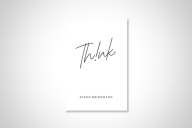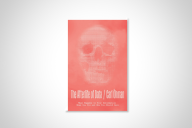You have /5 articles left.
Sign up for a free account or log in.
Privacy does not appear to have much of a future. As with the Arctic ice, we have no plan in place to halt the erosion, let alone to restore what has already melted away. “The right to be let alone,” wrote U.S. Supreme Court Justice Louis D. Brandeis in a classic formulation from 1928, is “the most comprehensive of rights and the right most valued by civilized men.” The menace to privacy he was addressing came from the state; at issue, evidence collected by tapping a bar’s telephone during Prohibition. He issued his opinion with a definite sense of the shape of things to come.
“Ways may someday be developed,” he wrote, “by which the Government, without removing papers from secret drawers, can reproduce them in court, and by which it will be enabled to expose to a jury the most intimate occurrences of the home. Advances in the psychic and related sciences may bring means of exploring unexpressed beliefs, thoughts and emotions.”
What he did not foresee, and probably could not, was how the right to privacy might be undermined -- dissolved, really -- by forces within the sphere of private decision making. Today, access to most of the digital tools and conveniences we’ve grown to depend on comes in exchange for permission to record and analyze our use of them. Every search and purchase, each comment and click, can now be assumed to go on your permanent record.
The scope and intensity of the monitoring are difficult, and unpleasant, to imagine. Meg Leta Jones, an assistant professor of communication, culture and technology at Georgetown University, sketches some of the facts of everyday life in the digital panopticon in her book Ctrl+Z: The Right to Be Forgotten (NYU Press):
“When a user logs on to the Internet and visits a website, hundreds of electronic tracking files may be triggered to capture data from the user’s activity on the site and from other information held in existing stored files, and that data is sent to companies. A study done by The Wall Street Journal found that the nation’s top fifty websites installed an average of sixty-four pieces of tracking technology, and a dozen sites installed over one hundred …. Some files respawn, known as zombie cookies, even after the user actively deletes them. All of this information is then sold on data exchanges …. Sensors creating data about owners and others from phones, cars, credit cards, televisions, household appliances, wearable computing necklaces, watches and eyewear, and the growing list of ‘Internet of things’ devices, mean that more personal information is being disclosed, processed and discovered. All of these nodes of discoverability will be added to the structure of discoverability sooner or later, if they have not been already.”
The scale and voracity of big data (which is to surveillance what big pharma is to medication) are not the only forces at work in liquidating the private sphere. The Internet and the roaming devices that feed into it -- cameras, tablets, phones, etc. -- now form the individual’s auxiliary backup brain. Two imaginative exercises that Jones proposes will make clear the potential vulnerabilities this entails.
First, recall the most painful thing in your life: something so excruciating, regrettable or tinged with shame or guilt, or both, that you would burn out the very memory of it, were that an option. Then, think about the worst person you have ever known: someone whose capacity for, in Jones's words, “inconsiderate, nasty, spiteful or twisted behavior” you wish you had learned about early on and so avoided experiencing firsthand.
There’s no substitute for a thick skin or good intuition -- least of all the external, digitized gray matter used to store written and visual documents and to mediate what seems like a larger share of each succeeding generation’s social interaction. Instead, it has the potential (even, to go by anecdotal evidence, a talent) for making things much worse. The dark secret or agonizing experience can be recorded, stored, duplicated endlessly and broadcast for all the world to see. The barrier between public and private self can vaporize with a press of the “send” button, whether in haste or by accident. Conversely, the malicious person might be able to cover his own tracks -- taking down his slanderous blog or threatening comments, for example -- and carry on after the damage is done.
Both could happen at once, of course: the vilest person you know could get hold of whatever you most want to hide or escape, and thereupon, presumably, burn your life to the ground. But the situations that Jones describes need not come to pass to have an effect: “Worry or fear may curb your behavior on- and off-line to avoid the risks of unwanted attention, misinterpretation or abuse.”
It is tempting to reply that worry and fear can be useful emotions, and that learning “to curb your behavior on- and off-line to avoid the risks of unwanted attention, misinterpretation and abuse” is otherwise called growing up. One problem with moralism of this caliber is that it dodges a hard truth: yes, maturity includes knowing to avoid behavior that is dangerous or likely to have undesirable consequences. (Example: consuming a great deal of alcohol and telling someone what you really think of them.) Sometimes this knowledge must be acquired the hard way and mulled over in private; the important thing is that enough of it accumulates. The learning process involves recognizing and repudiating mistakes, and gaining a certain amount of distance from the earlier self who made them.
But what happens to the possibility of growth and change if the infraction can’t be escaped? If a document of the regrettable memory is out there, retrievable by others, perhaps impossible to live down? For that matter, what becomes of “the right to be let alone” when seemingly private life generates data that is compiled and analyzed and sold?
The legal and moral implications require a rethinking of much of what we take for granted, and Jones is plugged in to many of the conversations. Her perspective on the question of privacy is thoughtful enough that I’ll return to Ctrl+Z in next week’s column. Suffice to say that she is not prepared to call for an autopsy, just yet.








